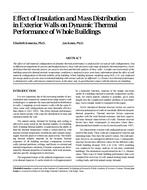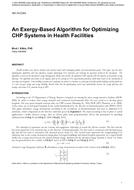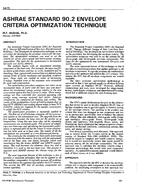This paper discusses moisture measurement instrumentation available or required for building research, together with some recent developments. The paper focuses on measurement of in situ moisture content (MC) and humidity in buildings and building components. Electric resistance measurements have been most often used for this purpose. This method has the advantage of being relatively cheap, but many interfering factors limit the accuracy obtainable and the method is inherently intrusive. An alternative method, using capacitance measurements, is nonintrusive, provided that the area of interest is close to the surface. It is potentially less sensitive to interference from some extraneous factors, but at present it is difficult to use quantitatively. Both electrical methods face major problems because they assume a homogeneous distribution of moisture and because conducting material layers can greatly interfere. A promising technique is nuclear magnetic resonance, but currently it does not yield reliable quantitative results and involves complex and expensive apparatus.
Relatively little is known about actual performance of instrumentation in buildings or building components. A survey of building researchers and others who could document their experience with various moisture measurement techniques would be very valuable. Development of a common evaluation procedure would also be helpful.
Units: SI
Citation: Symposium, ASHRAE Transactions, 1985, vol. 91, pt. 2B, Honolulu, HI
Product Details
- Published:
- 1985
- Number of Pages:
- 15
- File Size:
- 1 file , 1.3 MB
- Product Code(s):
- D-HI-85-22-3


